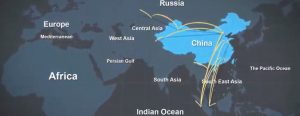BBC Chinese recently reported that the popular U.S. TV series Game of Thrones is also very popular in China. However, when the Chinese fans were eager to watch the final episode on May 20, the broadcaster Tencent cut the show off one hour before airing citing technical difficulties, without providing a new air time. Tencent is the sole distributor of Game of Thrones in China, and many fans paid extra for the VIP access to watch the show. The cut-off caused nationwide anger online, especially when Tencent’s version of the show had already passed China’s official screening. A large number of Chinese netizens questioned whether this is part of the public opinion war against the United States. Once the trade war restarted recently, China’s media have been engaged in a wave of anti-American activities. Many normal TV broadcasts were replaced by old movies covering the Korean War. Tencent stock dropped 3.88 percent instantly after the event. Both Tencent and HBO refused to respond to this matter. Game of Thrones is very popular among China’s top leadership members as well, including President Xi himself. They typically watch a much-compressed edition called the “diamond version” in order to save time.
Source: BBC Chinese, May 21, 2019
https://www.bbc.com/zhongwen/simp/chinese-news-48345861

